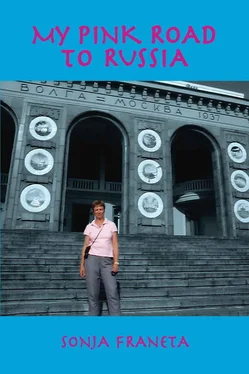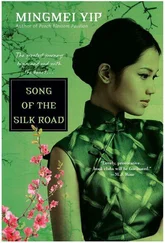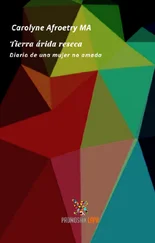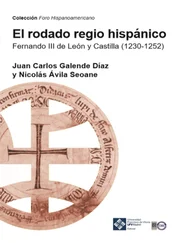While feminism has critiqued gender roles in terms of inequality, queer theory challenges these roles in a different way. Let’s look at masculinity which is deemed to be the very opposite of gay. According to conventional ideas, if a gay man is an unmasculine man and a lesbian is a woman trying to be a man, how are transgender people perceived? A male-to-female transgender person has lost her manhood, and she falls to an even lower status than gays and lesbians. Both lesbians and female-to-male transgendered people are perceived as women who want to be men. Overall this relates to the societal negative regard of women and queers and all the phobias associated with them are at the very heart of misogyny.
Unfortunately misogyny, transphobia, and homophobia are worldwide problems. With the great migrations of our times, education to combat prejudices and intercultural communication training are very much needed. Some of my English language students from China, Russia, and elsewhere say, for example, that there are no gays in their countries or that “it only happens in prison.” They fear “catching AIDS” if they associate with gays and lesbians. Those who are gay are afraid to come out, especially to compatriots because news may get back home to their families.
In my research in Russia, I spoke to a greater number of female to male transgendered people than male to female. Two Russian sexologists confirmed to me the existence of more FTMs than MTFs in Russia. Does this have a social basis? In other words, are some women trying to move out of being female perhaps because of social privilege or class? I met a female couple in Russia, one of whom clearly said she wanted to have a sex change because it would make her and her partner’s lives easier and they would be accepted. I have also met people who were not willing to go through sex changes but wanted to be considered a different sex among friends. Were they passing to avoid transphobia? The world needs more stories and explanations of all this to progress in the arena of human rights.
Non-Western concepts of gender encountered outside the Judeo-Christian, European-based tradition give a perspective on the variance that has existed throughout time:
1. The berdache , or “two-spirits,” Native American term for a person who is trangender or simply cross-dresses, male or female. This identity existed in over one hundred tribes, according to Gilbert Herdt in Same Sex, Different Cultures . Some of these people were considered shamans, some had same-sex relations. For students of “multiple minorities, having historical homosexual antecedents helps to counter the recurrent charge that homosexuality is a white Western contaminant,” writes Arthur Lipkin in Understanding Homosexuality, Changing Schools.
2. Kathoey or “ladyboys” have had a long tradition in Thailand. They are thought of as a third gender—males who dress as a women but take pride in their male genitals. The majority are open and have jobs. To gain a level of acceptance and to make a living some turn to performance while others become sex workers. Unfortunately, some kathoey have become part of the greater sex industry exploited by rich Europeans and Americans, which has led to a derogatory association of kathoey with homosexuals. This has transformed an old tradition or cultural practice. “Buddhism takes a generally positive and supportive view of sexuality, and about homosexuality,” says Herdt.
3. In Polynesia, Hawaii, and Samoa there is a third gender that is very accepted by the society and not shameful. The Samoan fa’fafine are males who make “feminine” choices about gait, speech, appearance, and even the kind of work they want to do. The original gender focus again changed to a focus on sexual orientation with the encroachment of Europeans, Herdt says. Today there is a Samoan gay culture separate from the fa’fafine , but there is a strong alliance between the two groups.
4. The hijras of India also have a long tradition and live in communities. Most are eunuchs and are considered both man and woman, even though “their feminine dress and manners are often exaggerated,” says Serena Nanda, as cited by Herdt. Historically they reject sexuality, but again because of the demands of the sex industry, they have come to relate to heterosexual men who consider the hijras “women” or passive partners. Their roles in society are complex, although they are considered a specific caste and devotees of the Hindu mother goddess.
In The Sacred Hoop: Recovering the Feminine in American Indian Traditions , Paula Gunn Allen, a Native American lesbian activist and professor, discusses gender roles and gender designation in various American Indian cultures. Gender variance and homosexuality both male and female were accepted.
The Yuma had a tradition of gender designation based on dreams; a female who dreamed of weapons became a male for all practical purposes. In this the Yumas were similar to the neighboring Mohaves and Cocopah, except the gender-role designation was based on the choice of companions and play objects of a young person. In such systems a girl who chose to play with boys or with boys’ objects such as a bow and arrow became a male functionary. Among the Mohave, another dream-culture people related to the Yuma, the hwame, a term roughly corresponding to “dike” in English, took a male name and was in all respects subject to ritual male taboos vis á vis females, such as avoidance of contact with a menstruating wife. The hwame’s wife was not considered hwame but simply a woman.
Once, after an interview with a transgender person, I was invited to a party with his friends in Novosibirsk. There were some twenty people there, about half FTMs and the others very feminine-looking women. There were a few established pairs, and we did some dancing. At one point in the party, the girls went into the kitchen to chat, and the guys were in the sitting room. I felt confused about where I should go and asked my friend Sasha. He pointed to the kitchen—the females. I felt a bit disappointed because I didn’t consider myself a traditional female—I didn’t wear makeup and heels, I dressed in a more androgynous way, and most of all I didn’t look up to men as superior. But they certainly weren’t straight women either.
The heterosexist oppression enforced by European Christianity knows no bounds. Allen, after discussing Judy Grahn’s research in Another Mother Tongue: Gay Words, Gay Worlds , writes:
Recent scholarly work reveals the universal or nearly universal presence of homosexuality and lesbianism among tribal peoples, the special respect and honor often accorded gay men and women, and the alteration in that status as a result of colonization of the [American] continent by Anglo-Europeans. These studies demonstrate the process by which external conquest and colonization become internalized among the colonized with vivid clarity. Homophobia, which was rare (perhaps even absent entirely) among tribal peoples in the Americas, has steadily grown among them as they have traded traditional tribal values for Christian industrial ones.
Traditional gender roles and crossovers of gender and sexuality exist in all cultures—Vietnam, Serbia, the Dominican Republic, and Senegal, to give only a few examples. Most people in our societies are not educated in variant identities. Queer scholars should not be the only ones to take up questions involving queer communication.
We need not a merging of feminist and queer analyses but an alliance of all sectors, an intersection, an inclusion of queer in all language and gender studies and research and vice versa. We need more feminists, more critical pedagogy scholars, more linguists and teachers to understand and adopt queer theory and be aware of the overwhelming heterosexist focus of our scholarship and education. Concerted study and understanding of our marginalized communities, integration of queer interpretations in all disciplines, and interdisciplinary research in gender and queer theory is long overdue. We can move beyond the divisions in society and refuse to be other and join forces with all marginalized sectors to create a better world.
Читать дальше












